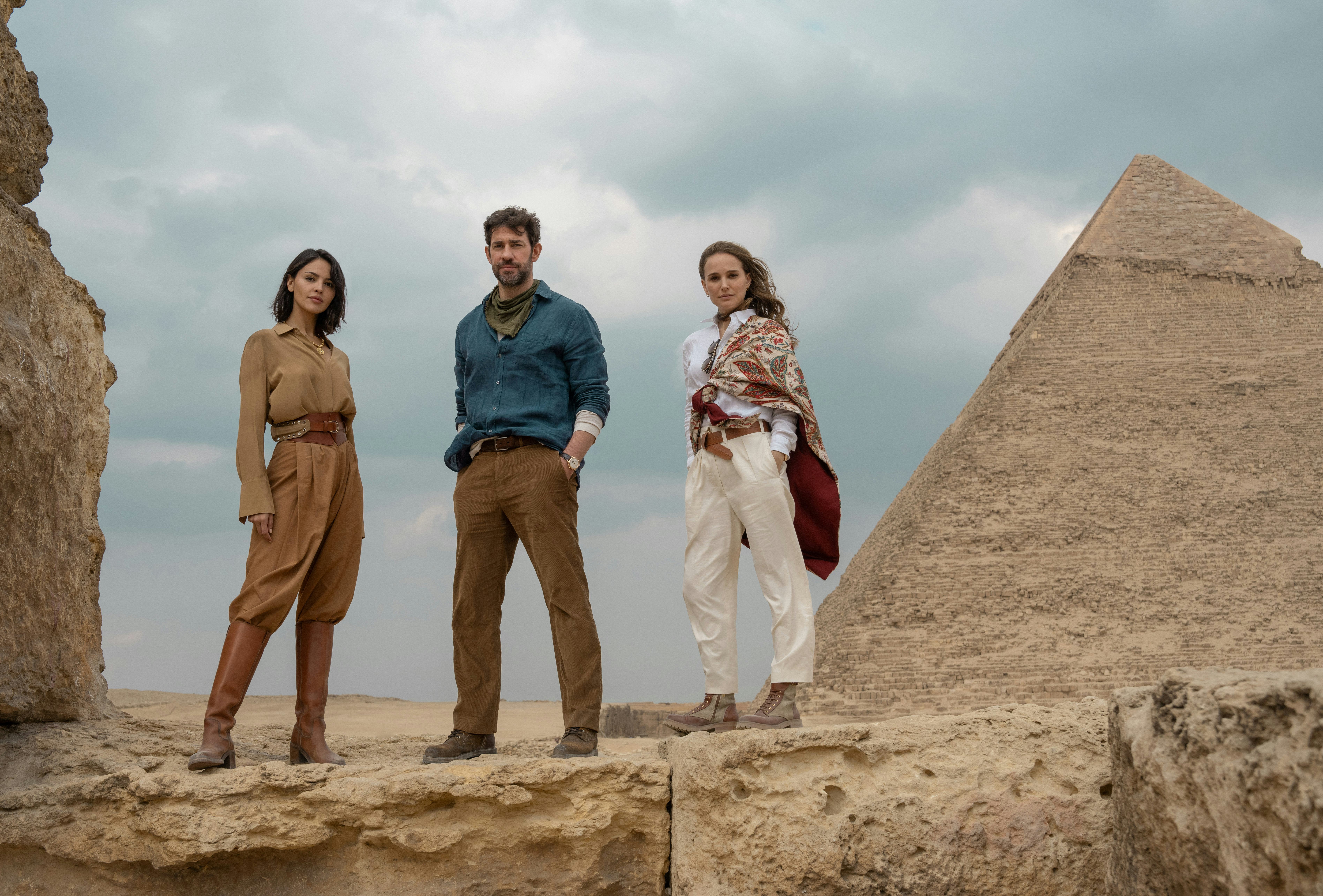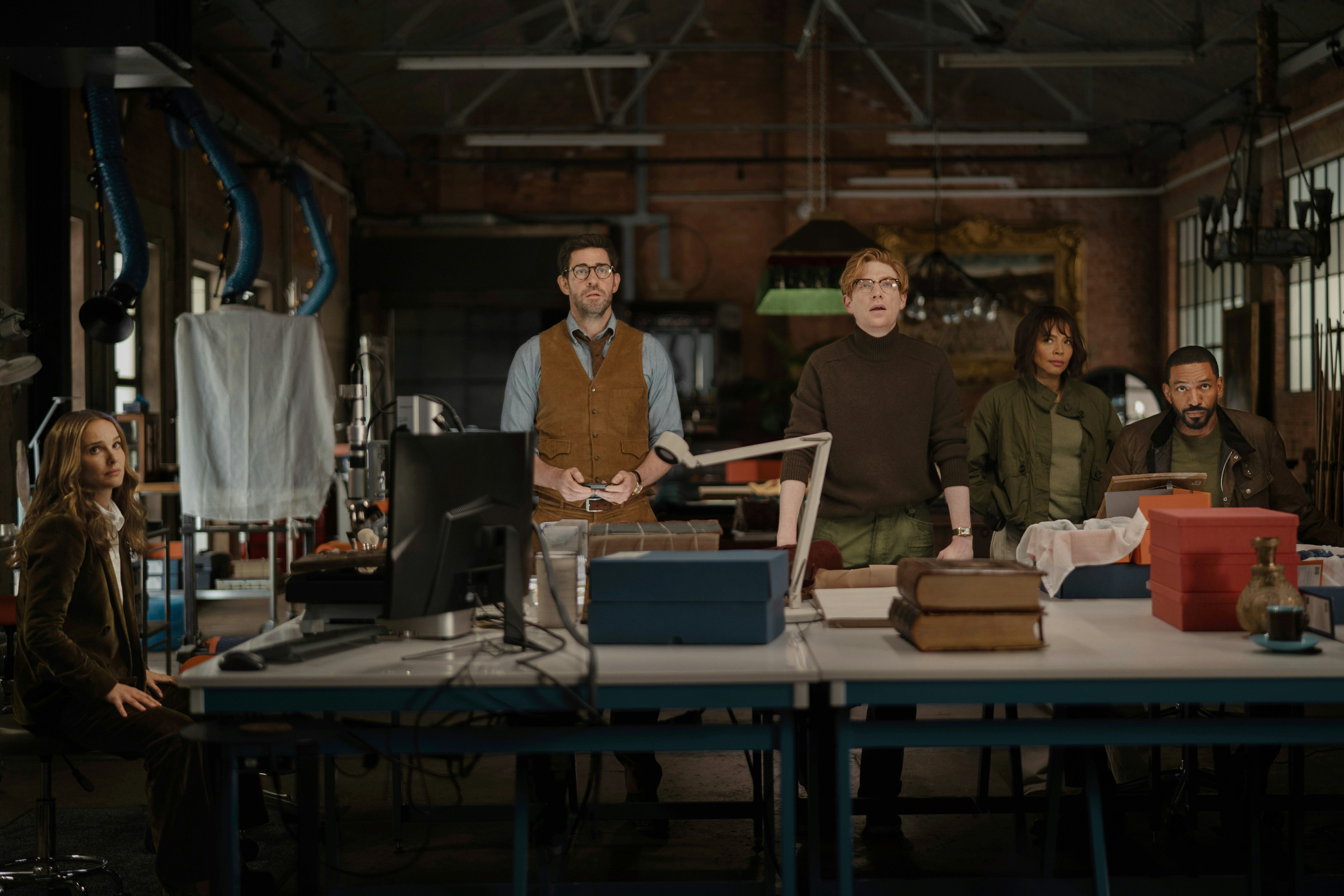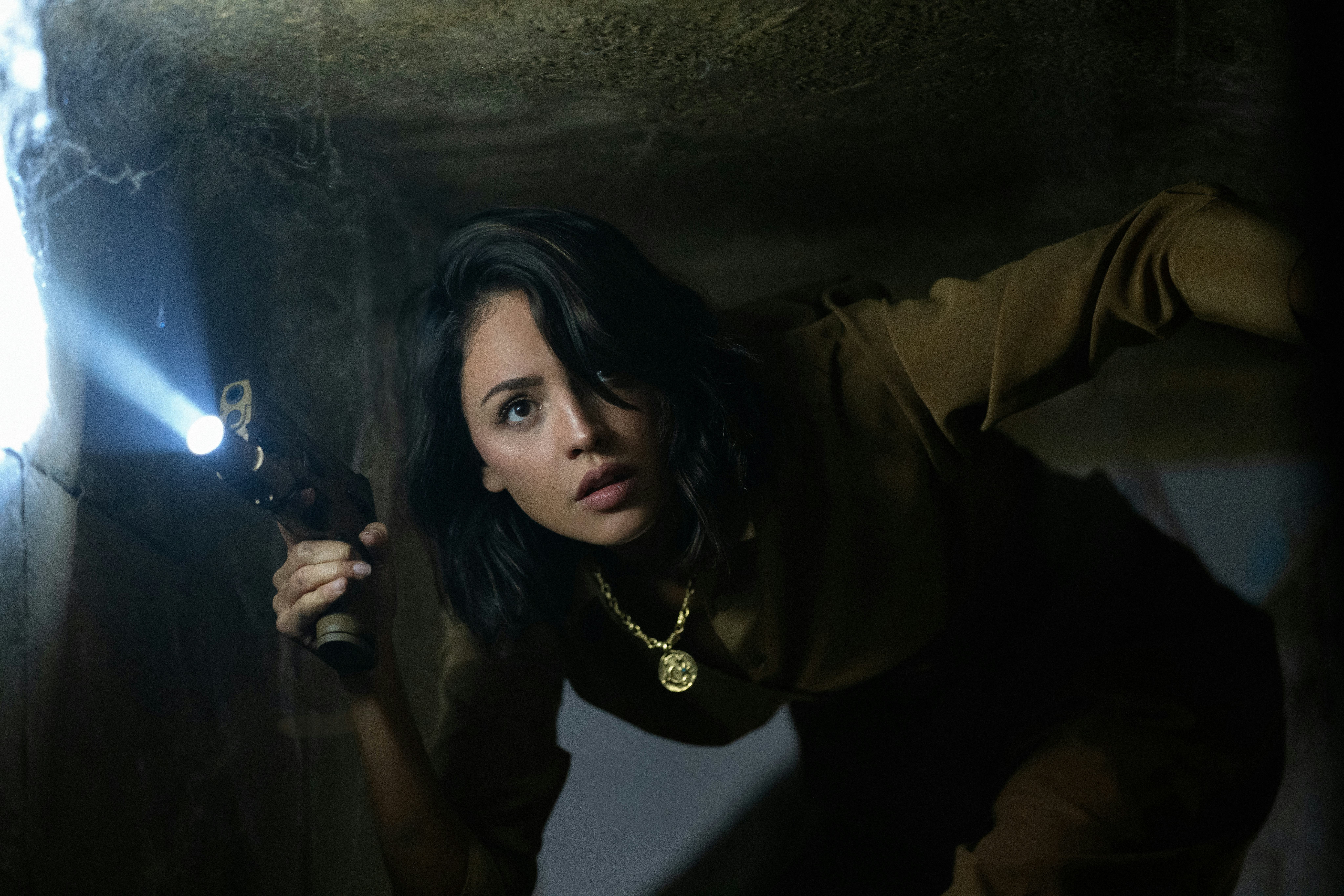
Making a good fantasy-adventure film is a lost art. The microgenre once fueled a lucrative cottage industry: half the major blockbusters in the 2000s were some kind of riff on Indiana Jones. Capable as they are of pleasing a crowd, however, the offerings we’ve received in the past few years just haven’t hit the same. Warner Bros’ Tomb Raider remake never made the waves it deserved, while Sony’s adaptation of Naughty Dog’s Uncharted games fell utterly flat. Not even Disney, the godfather of the genre, has managed to keep the magic alive. (2021’s Jungle Cruise, while admittedly entertaining, dried out on Disney+, and the less said of the messy Indy sequel Dial of Destiny, the better.)
It’s hard to keep rooting for an idea that feels less relevant by the day. If we’re being honest with ourselves, every possible version of this story has already been told. The well is dangerously close to running dry — but that doesn’t mean we can’t still wring a drop of entertainment from the remains. That’s exactly what Guy Ritchie sets out to prove with Fountain of Youth. The director is no stranger to a rehash, as he’s spent the past decade and change essentially making the same kind of crime caper in different fonts. That he’s finally stepping out of his comfort zone and into a new-ish frontier is one of the film’s major surprises; the other is just how much fun Ritchie seems to be having behind the camera.
Fountain of Youth benefits a lot from Ritchie’s outsider perspective. The director is no stranger to a blockbuster, especially one of this ilk, packed with so many stars and backed by the kind of budget that makes such a lucrative globetrot possible. Despite his affinity for history and adventure, Ritchie has never truly leaned into this kind of film. The script penned by James Vanderbilt capably riffs on familiar beats from National Treasure and The Mummy, giving Ritchie leave to tap back into the jaunty vibes that once made him Hollywood’s director du jour. After two glossy, subdued turns in Netflix’s The Gentlemen and Ministry of Ungentlemanly Warfare, it’s nice to see Ritchie cut loose — and with a film that looks and feels the part.
Ritchie kicks things off with a kinetic chase scene through the streets of Bangkok, one of many flexes of the film’s well-used budget. Here, we meet John Krasinski’s roguish leading man, Luke Purdue. A fast-talking art thief who hails from a family of adventurers, he’s got a lot more in common with Uncharted’s Nathan Drake than he does with more straightlaced treasure hunters. Though he parrots his late father’s catchphrase — “the journey is worth the prize” — to anyone who’ll listen, it’s clear he cares much more about the reward than the risks or collateral damage it takes to win it.
The same cannot be said for Luke’s younger sister Charlotte (Natalie Portman). She was once the responsible, culturally-conscious yin to Luke’s destructive yang; though she left that life behind to “grow up” and score a cushy museum job, there’s a sense that she still feels called to adventure. At least, that’s what Luke is hoping for when he shows up unannounced after a year of no contact. In the span of an afternoon, Luke’s antics cause Charlotte to lose her job and, nearly, custody of her 11-year-old son Thomas. (She’s embroiled in a messy divorce with her boring British husband, a misfortune that Luke apparently saw coming a mile away.)

All this tumult is naturally distressing for Charlotte, but it also frees her to help him with his latest expedition: finding the Fountain of Youth. Luke’s been hired to uncover the mythical spring by Owen Carver (Domhnall Gleeson), a mild-mannered technocrat who’s suffering from liver cancer. The hope is that the Fountain’s magical properties will reverse his diagnosis and save his life. It’s a noble enough reason to seek out the fabled source of eternal life, if it even exists. Luke and the other members of his team (played by The Penguin’s Carmen Egojo and The Boys’ Laz Alonso) are quietly convinced, but they still need to piece together the map to the site of the Fountain.
Their quest involves a pinch of compelling art history, some apocryphal religious text, and other miscellaneous history tropes. Vanderbilt’s script keeps the cast on their toes without muddying the script in too much mystery, and it helps that each set piece is more breathtaking than the last. Charlotte reluctantly follows Luke to a sunken cruise liner in the middle of the ocean, through the oldest libraries in Europe, and finally to ancient Egypt. Cinematographer Ed Wild captures the spectacle with wide, unblinking focus, allowing the occasional burst of action — and the breathtaking visual effects in the film’s back half — to stand on their own. Even when our characters stray too far into cliche, it’s hard to take much umbrage. Krasinski and Portman don’t always gel well with the goofier beats here, but this film’s lush visuals cover a multitude of sins.

Fountain of Youth is a genuinely good-looking film, but it’s also a little crowded. Luke and Charlotte’s team obviously aren’t the only ones in the mix here — Luke’s many art-related crimes have put him in INTERPOL’s crosshairs and placed one determined agent (an effortlessly cool and impeccably dressed Arian Moyaed) on their tail. There’s also Eiza González’s mysterious femme fatale, the leader of her own shadowy team. As Esme, she’s one of the highlights of Fountain of Youth, just as she was in Ritchie’s last big-screen effort. González lays out her motivations with a mixture of deadpan wit and steely, cryptic gravitas. Whenever the disparate forces of the film converge, she guides our story to its bombastic conclusion, inviting our heroes to confront the true consequences of their line of work.
Perhaps more than any film in this genre, Fountain of Youth is a story with a conscience. It’s keen to interrogate the side of adventuring that others, Indiana Jones included, tend to gloss over. Portman’s Charlotte is already keyed into the inherent skeeviness of tomb robbing, but it takes Luke a little longer to acknowledge all that he sacrifices in chasing adventure. Whether he’s worthy of the treasure he’s seeking so fervently is the question that drives the film. Ritchie is 100% tuned into the supernatural leanings here, but Vanderbilt’s focus on character ensures that the intimate details aren’t lost in the spectacle. That combination makes for a balanced and endlessly entertaining adventure — one of the best we’ve had in years, and Ritchie’s strongest in a long while.







